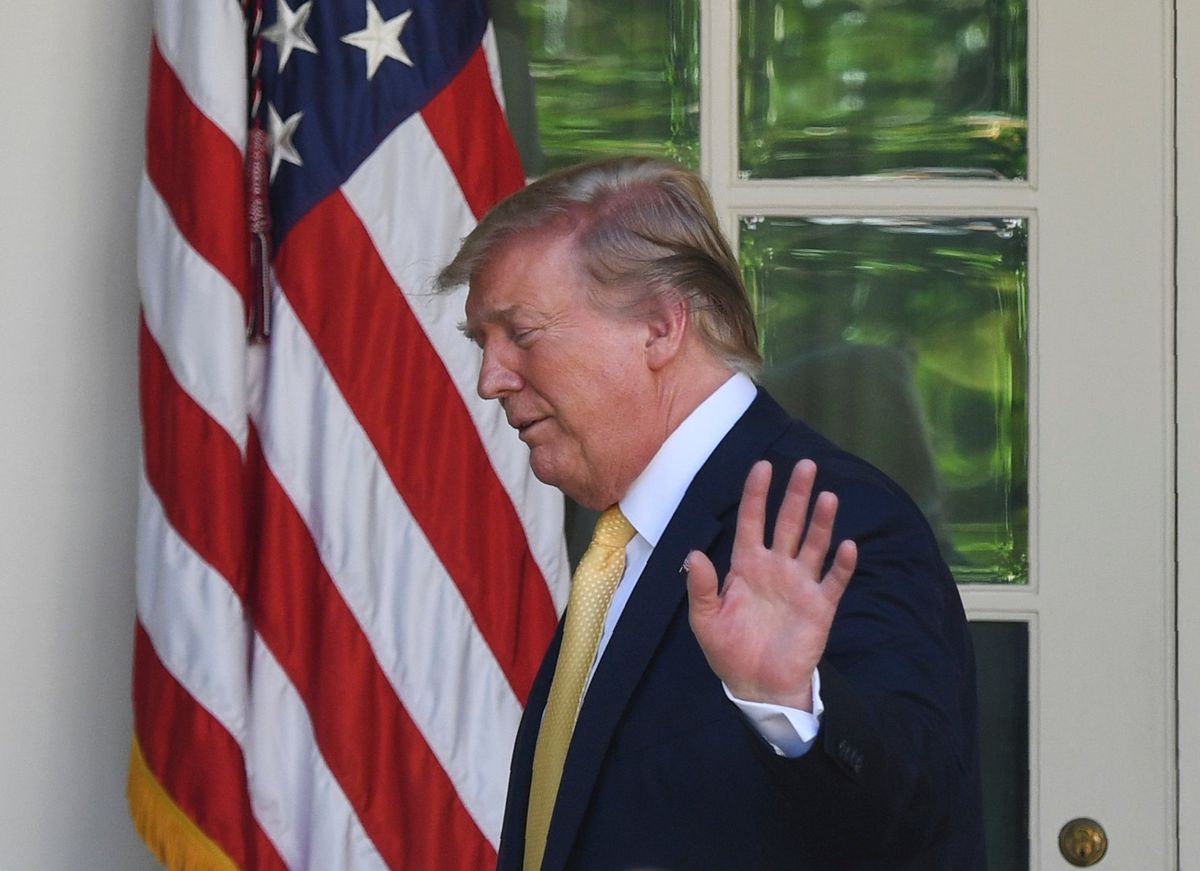
Is Receiving Foreign ‘Oppo Research’ Legal?
The brouhaha over U.S. President Donald Trump’s “oppo research” comments — that he’d be willing to accept outside foreign government political assistance — comes down to this question:
Is opposition research a “thing of value” that foreign nationals are prohibited from offering to American political campaigns?
In an interview with ABC News on Wednesday, Trump said he’d consider any foreign-sourced information that would help his 2020 re-election bid.
“There is nothing wrong with listening,” Trump said. “If somebody called from a country — Norway — ‘We have information on your opponent.’ Oh. I think I’d want to hear it.”

FED comments; Trump backpedals
Trump later backpedaled, but the uproar caused by his comments was enough to prompt Ellen Weintraub, the chairwoman of the Federal Election Commission, to release a statement reiterating a long-standing U.S. prohibition on foreign assistance in U.S. elections.
“Let me make something 100% clear to the American public and anyone running for public office: It is illegal for any person to solicit, accept or receive anything of value from a foreign national in connection with a U.S. election,” Weintraub, who was appointed by former President George W. Bush, wrote.
U.S. election law prohibits foreign nationals from making — and U.S. campaigns from soliciting and receiving — “a contribution or a donation of money or other thing of value.”
The law doesn’t say what constitutes a “thing of value.” However, FEC regulations consider all “in-kind contributions” such as office space, equipment and advertising services “things of value.”
Is it a thing of value?
Although the FEC hasn’t ruled on whether opposition research constitutes a thing of value, a spokesman noted that the commission has advised that candidates report “research/research services” as campaign expenditures. In recent years, a number of political campaigns have reported expenses related specifically to opposition research.
U.S. political campaigns spend tens of millions of dollars on opposition or “oppo research” — damaging information gathered for political advantage. In the 2016 election cycle, campaigns and political action committees spent nearly $71 million on “research,” according to Campaign Legal Center.
“Opposition research is something people ordinarily pay for, so in that sense it looks like it could be considered a thing of value and fall within the prescription of the law,” said James Gardner, an election law expert and professor at State University of New York at Buffalo.
But simply “listening” to information derived from foreign sources may rise to the level of a campaign finance violation.
“There are probably First Amendment considerations at work in terms of communication about a political subject,” Gardner said. “I don’t think the federal law was designed to prevent exchange of information.”
Foreigners can't be paid
U.S. law allows foreign nationals to provide personal services to political campaigns as long as they’re not paid, according to the Campaign Legal Center.
Jennifer Daskal, a professor at American University Washington College of Law, said opposition research can be viewed as a “thing of value” because it costs money to produce it.
“Certainly, opposition research is valuable and it should be understood in my view as a thing of value,” Daskal said.
But determining the cost of the research is tricky and important in terms of its legal consequences. While campaign finance violations involving $2,000 to $25,000 during a calendar year carry a maximum penalty of one year in prison, a smaller violation may result in a simple fine.
Congressional action needed
To shield U.S. elections from foreign interference, Daskal said, Congress must pass legislation requiring political candidates to report any offer of assistance from foreign governments to the FBI.
“It’s important that … the Department of Justice and the intel community have information that they need to follow up and help protect against undue influence,” she said.
 Trump Says he’d ‘of Course’ Tell FBI if he Gets Foreign DirtNext PostIvanka Trump, Jared Kushner Took in at Least $135M in 2019
Trump Says he’d ‘of Course’ Tell FBI if he Gets Foreign DirtNext PostIvanka Trump, Jared Kushner Took in at Least $135M in 2019
THE REAL STATE OF THE UNION TONIGHT AT 7PM ET.
Record Stock Market highs. Border secured. Cartels crushed. “America is back.” This is MUST-SEE TV. Wall-to-wall LIVE team coverage starts TUESDAY at 7PM ET on the RAV network!







